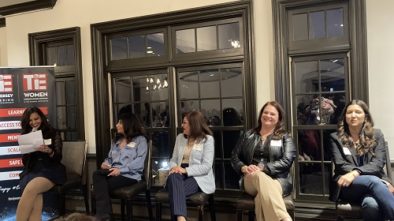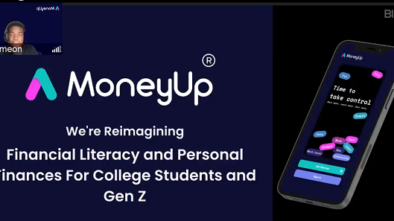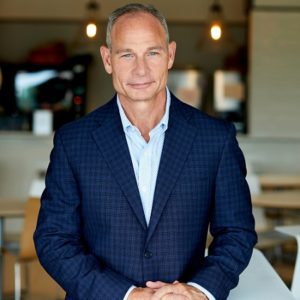Interview: Paul Lewis of Calamu Who Recently Raised a $2.4 Million Seed Round to Disrupt How Sensitive Data is Stored
The idea behind Calamu, a Clinton-based startup, is easy to understand. Calamu’s product fragments data files, then encrypts and scatters them across multiple public clouds. It does this using a patented process that makes the files breach-proof, immune to ransomware and regulation compliant. When a company wants its data whole again, the company reverses the process.
That’s what Calamu’s founder and CEO, Paul Lewis, pitched at the TechLaunch BullPen #18, in late September. Calamu won that event, and the award included mentorship from TechLaunch, a New Jersey business accelerator, which propelled the company towards a two-part $2.4 million seed round raise that will allow it to grow and scale. When he won the TechLaunch BullPen, Lewis received meetings with Jumpstart New Jersey Angel Network (New Brunswick) and Tech Council Ventures (Summit). Jumpstart later became a lead investor.
Lewis is a serial entrepreneur who, prior to launching Calamu, spent 10 years working for T&M, a private security and investigations company in New York, where he launched the cybersecurity consulting group.
During the same time, as he was raising money on the East Coast, Lewis took a trip to Silicon Valley to talk to other potential investors. Read on for his story.
How did the idea of Calamu come up?
I came up with the idea many years ago. This wasn’t something that I had an “Aha!” moment about. Instead, we had this big bad problem of data breaches in the world, and I wanted to figure out how to solve it. I was using all my own money to support this solution. Most people do, and they make their money stretch as far as they can. But when I actually decided to launch this, I got to the point where I knew I needed a heftier lift.
My vision is [to be able] to harness the power of the public clouds, which are just immensely powerful and limitless in size and scope. But I wanted to do it in a way where the data was truly protected and easily accessible for the owner of the data. So, I look at the clouds as being a utility, not a service. … I think you can use multiple clouds and spread your data across multiple clouds, and then just move it in and out. So, if you decide you want to discontinue a relationship with one public cloud for whatever reason, the data just automatically flows to the new cloud. We built the platform to work with any cloud or any private system. So, everything could be on premises or a combination of cloud and on premises.
I understand that New Jersey-based tech accelerator TechLaunch was instrumental in your funding journey?
When I began networking, I reached out to anyone who would listen. I’ve known Mario [Casabona] for about 20 years, so I reached out to him. Mario and I were on Fairleigh Dickinson University’s alumni council, and I believe we met at the Rothman Institute.
I reached out to him, and I said “I want to show you something. I want to get together and talk about something,” and he was open to doing that. And I brought my pitch deck with me and showed it to him. He took out a pen and pretty much crossed out every single page of this pitch deck that I put together. And he slid it back to me and he said, “This is terrible. This pitch deck is terrible.”
But he understood the idea that I had, the passion I had and the need in the industry. He recommended that I connect with others, and I did connect with them through the TechLaunch [Virtual] Office Hours and mentorship program. Peter Kestenbaum was particularly helpful.
We spent some time really working on the value proposition and how I wanted to approach the market. I knew the product was there, and I knew the demand was there and the need was there. But I just needed to tell a compelling story.
So that started your funding journey?
I began meeting with others and explaining my vision. It was easy to explain because everyone is familiar with ransomware, and that made my job easier for me. People liked the solution. I was trying to raise $1 million at the end of 2020. There was more interest than $1 million, and we initially shut off the round at $1.65 million. I said no to a lot of people because I was looking for investors that not only had money to invest, but could help the company in some way. Everyone who came on board could help the company in some way. We were able to attract some iconic advisers from Silicon Valley. One is a chief marketing officer from a major tech company who is helping us with our branding and messaging. We reopened the round. The latest addition to the board is John Stewart, former [chief security and trust officer] at Cisco Systems. He is also an investor.
How was fund raising in Silicon Valley during the pandemic?
I did take one trip out to Silicon Valley during the pandemic, and I had a series of meetings over the course of two days. They were all in outdoor coffee shops and big hotel lobbies sitting far apart from one another. With a couple of exceptions, I had already met everyone I was meeting with by video conference, but I felt that if I wanted them to invest a significant amount of money and be involved in the company, I wanted to meet them face to face. I owed them that courtesy. We all agreed we would get tested for COVID-19, and before I flew out there everyone had to have negative tests. I scheduled my test for the morning of my flight out to California, and when I got to the testing facility, they said they didn’t provide testing anymore. I had to scramble before my flight to find a walk-in testing facility. They said they’d text me the results in a couple of hours. Well, I arrived at the airport, no test result. I went through security, no text. The flight is boarding, no text. I get on the plane, and just before they closed the door, I got the text that I was negative. I didn’t know what I’d do if the result had been positive.
Why do you think you’ve gotten so much positive reception for your startup?
This speaks to the product and the problem we are going to fix; but, also, it’s about having the right mix of champions and advisers. You can have the best idea in the world and not be able to execute on it. And people will figure that out in a minute. So, we have a really solid team. Everyone is fully committed. You can’t have a full-time job and do this startup. When I recruit people, they’ll often say, “You know, I have a full-time job.” And I say, “So did I, and I have three kids in college.” You just have to get off the fence and jump off with both feet.
Now that you are fueled with money, what’s next for Calamu?
I’m carefully building our team, and the team is all preselected and they’re coming on in a very methodical manner. We are working on some marketing efforts. We are pushing the development life cycle like it is on steroids, seven days a week, literally, seven days a week, in very, very quick sprints to get the product where we need the product to be.
Because of the sensitivity of the product we have, it was important that we have all domestic developers that have been background-checked, and for the most part they’re all from New Jersey. They are all employees of Calamu and they are a talented, good, trustworthy group of people. I decided not to offshore. Because this is a security product, I needed to really understand how this was built.
We are going to market in a very controlled way through a beta, approaching companies in certain industries. Our sweet spot, and our easiest case, is regulated data. Nobody wants to hold onto something longer than they need to. Some industries have mandatory notifications or disclosure if their data is breached. There’s a lot of bad will associated with that. So, we have a way to really, truly protect data, and an easy use case in regulated data.
We’ve been in beta for a few months. At this point, we’re getting good strong feedback from our beta. We were going to be emerging from beta shortly, but I wanted to go through the whole process to get this valuable feedback, and incorporate what we’ve learned into our product.




